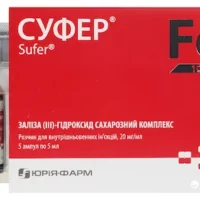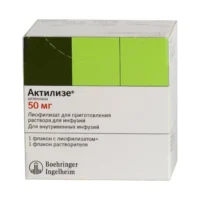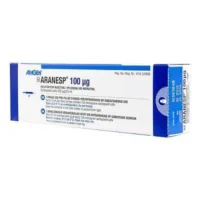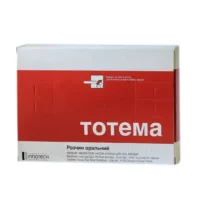Description
Recormon (Epoetin Beta) Solution for Injections 2000 IU/0.3 ml Syringe №6
Ingredients:
- Each 0.3 ml syringe contains 2000 IU of epoetin beta as the active ingredient.
Dosage:
- The recommended dosage of Recormon injection is determined by the patient’s weight and condition. It is administered subcutaneously or intravenously as directed by a healthcare professional.
Indications:
- Recormon is indicated for the treatment of anemia associated with chronic kidney disease, chemotherapy, or zidovudine therapy in HIV-infected patients.
Contraindications:
- Do not use Recormon if you have uncontrolled hypertension, pure red cell aplasia, or a known hypersensitivity to epoetin beta or any of the product’s components.
Directions:
- Administer the injection exactly as prescribed by your healthcare provider. Do not self-inject unless instructed to do so. Follow all instructions for proper disposal of used syringes.
Scientific Evidence:
- Studies have shown that epoetin beta effectively stimulates erythropoiesis, increasing red blood cell production and improving anemia symptoms in patients with chronic kidney disease and cancer undergoing chemotherapy.
- Recormon’s pharmacological action involves binding to erythropoietin receptors on red blood cell precursors in the bone marrow, stimulating their proliferation and differentiation, ultimately leading to an increase in red blood cell production.
- Clinical trials have demonstrated the comparative effectiveness of Recormon in managing anemia compared to other erythropoiesis-stimulating agents, with similar efficacy but potentially differing safety profiles.





